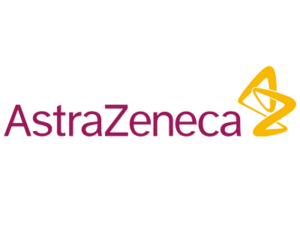Presented by Prof Dr François Duhoux (Cliniques Universitaires Saint-Luc, Brussels, Belgium)
During the 2024 annual San Antonio Breast Cancer Conference, Prof Dr Hope Rugo, director of the breast oncology clinical trials program at the University of California in San Francisco (USA), presented two interesting posters evaluating elacestrant-based combination therapies in patients with endocrine-receptor positive (ER+)/HER2- advanced breast cancer who previously received a combination of a CDK4/6 inhibitor and endocrine therapy in the advanced setting. In this video, Prof Dr François Duhoux, head of the medical oncology department at the Cliniques Universitaires Saint-Luc in Brussels (Belgium) talks us through the key take-aways from these two posters.
A first poster showed the results of the phase 1b/2 ELEVATE study evaluating combinations of elacestrant with either alpelisib, everolimus, palbociclib, ribociclib, abemaciclib or capivasertib.1 The primary objective of this study was to determine the recommended phase 2 dose of elacestrant in combination with each of these drugs. Overall, the evaluated elacestrant combinations continue to demonstrate a safety profile that is consistent with that of abemaciclib, everolimus, palbociclib, ribociclib, capivasertib, or alpelisib in combination with standard of care endocrine therapy. For the moment, a recommended phase 2 dose has been determined for palbociclib, abemaciclib and everolimus. In the combinations of elacestrant with abemaciclib or palbociclib, both drugs can be used at the regular dose. For the elacestrant-everolimus combination, however, the dose of everolimus is reduced to 7.5 mg QD, mainly to mitigate the risk for high-grade diarrhoea, mucosal inflammation and neutropenia.1
The second poster specifically zoomed in on the combination of elacestrant and abemaciclib.2 For this analysis, data from the elacestrant-abemaciclib arm in ELECTRA were pooled with data from arm C of the phase 2 ELEVATE study. In total this analysis included 42 patients with a median age of 60 years. Per protocol, all patients had previously been treated with a CDK4/6 inhibitor in the advanced setting. Of the patients in the study, 53% harboured an ESR1 mutation and 71% received the elacestrant-abemaciclib combination in 2nd line. Finally, about 4 out of 5 patients (83%) had not received chemotherapy prior to the study treatment. Overall, the elacestrant-abemaciclib combination was well-tolerated without any grade 4 adverse events during the treatment period. The combination also showed promising clinical activity with a median progression-free survival (PFS) of 8.7 months, increasing to 16.6 months in patients who received at least 12 months of prior CDK4/6 inhibition. Importantly, the PFS obtained with this regimen was not impacted by the presence of an ESR1 mutation.2 While validation of these findings in a randomized setting is of course warranted, these data do suggest that elacestrant could become a future endocrine partner for abemaciclib in patients with ER+/HER2- metastatic breast cancer. According to these findings, this combination has the potential to extend the PFS and delay the need for chemotherapy or an ADC-based regimen.
References:
Made possible with the financial support of our partners.
All videos are developed independently and are non-promotional.


